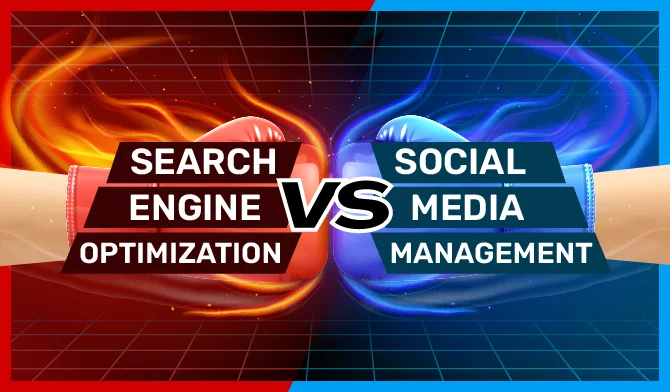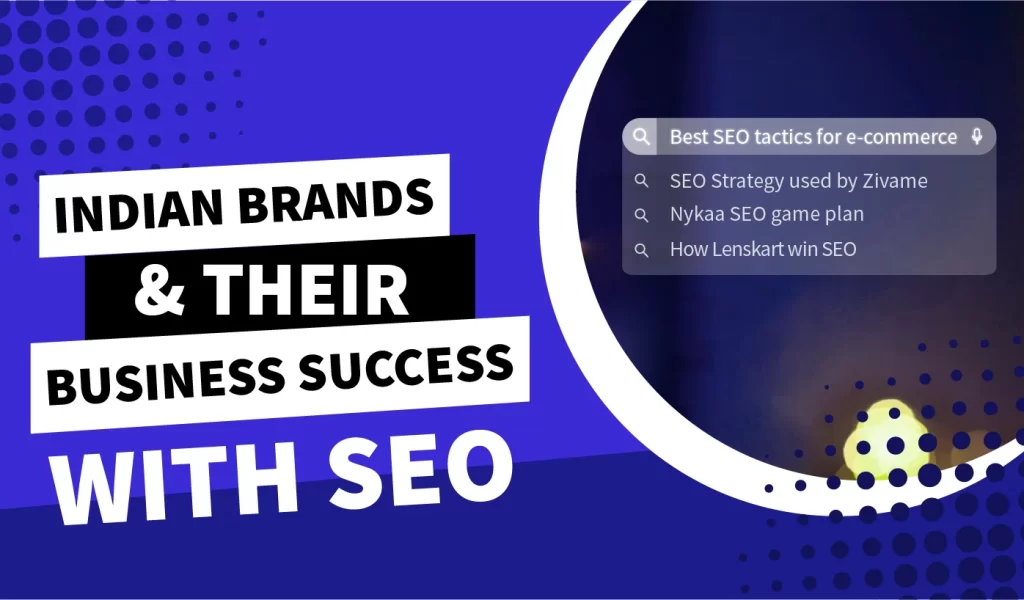Why search engine optimization is better than social media marketing?

In today’s digital age, businesses have a plethora of marketing strategies to choose from. Two popular options are search engine optimization (SEO) and social media marketing. While both strategies have their merits, SEO is a more effective long-term strategy for businesses looking to increase their online visibility and drive traffic to their website. In this article, we will explore the differences between SEO and social media marketing, why SEO is a more effective strategy, and how businesses can implement effective SEO strategies.
Understanding SEO and Social Media Marketing
Social media marketing, on the other hand, is the practice of promoting your brand, products, or services on social media platforms like Facebook, Twitter, Instagram, and LinkedIn. The goal of social media marketing is to increase brand awareness, engage with your audience, and drive traffic to your website.
While both strategies have their benefits, they also have their challenges. SEO requires a significant investment of time and resources to implement effectively, and results may not be visible for several months. Social media marketing requires a constant stream of fresh content and engagement to maintain your audience’s attention, and it can be challenging to measure the ROI of your efforts.
Why SEO is Better than Social Media Marketing
While social media marketing can be a valuable addition to your marketing mix, SEO is a more effective long-term strategy for several reasons:
1. SEO drives more traffic to your website.
According to a study by BrightEdge, organic search drives 53% of website traffic, while social media only drives 5%. This means that SEO is a more effective strategy for driving traffic to your website and increasing your online visibility.
2. SEO has a higher ROI.
SEO has a higher return on investment (ROI) than social media marketing. According to a study by Conductor, SEO has an average ROI of 14.6%, while social media has an average ROI of 7.7%. This means that businesses can get more bang for their buck by investing in SEO.
3. SEO has a longer lifespan.
SEO has a longer lifespan than social media marketing. While social media posts have a short lifespan and can quickly get buried in users’ feeds, SEO content can continue to drive traffic to your website for months or even years after it is published.
4. SEO is more cost-effective.
SEO is more cost-effective than social media marketing. While social media platforms require businesses to pay for advertising and sponsored content to reach their target audience, SEO can be implemented for free or at a low cost.
5. SEO is more targeted.
SEO is more targeted than social media marketing. With SEO, businesses can optimize their website for specific keywords and phrases that their target audience is searching for. This means that businesses can reach their ideal customers more effectively with SEO than with social media marketing.
How to Implement Effective SEO Strategies
To implement effective SEO strategies, businesses should follow these best practices:
1. Conduct keyword research.
Keyword research is the process of identifying the keywords and phrases that your target audience is searching for. By optimizing your website for these keywords, you can increase your visibility in search engine results pages and drive more traffic to your website.
2. Build high-quality backlinks.
Backlinks are links from other websites to your website. High-quality backlinks can improve your website’s authority and increase your visibility in search engine results pages. Businesses can build high-quality backlinks by creating valuable content, guest blogging, and participating in industry forums and communities.
3. Create high-quality content.
High-quality content is essential for effective SEO. Businesses should create content that is valuable, informative, and engaging for their target audience. This can include blog posts, infographics, videos, and other types of content.
4. Optimize your website for on-page SEO.
On-page SEO refers to the optimization of your website’s content and structure. Businesses can optimize their website for on-page SEO by using relevant keywords in their content, optimizing their meta tags and descriptions, and improving their website’s loading speed.
5. Monitor and measure your SEO efforts.
To ensure that your SEO efforts are effective, it’s essential to monitor and measure your results. Businesses can use tools like Google Analytics and Google Search Console to track their website’s traffic, rankings, and other metrics.
Current Trends and Future Possibilities
The world of SEO is constantly evolving, and businesses must stay up-to-date with the latest trends and developments to remain competitive. Some current trends in SEO include:
- Voice search optimization
- Mobile-first indexing
- Local SEO
- Featured snippets
In the future, we can expect to see even more developments in SEO, including the use of artificial intelligence and machine learning to improve search results and the continued growth of voice search.
Conclusion
While social media marketing can be a valuable addition to your marketing mix, SEO is a more effective long-term strategy for businesses looking to increase their online visibility and drive traffic to their website. By implementing effective SEO strategies like conducting keyword research, building high-quality backlinks, creating high-quality content, optimizing your website for on-page SEO, and monitoring and measuring your results, businesses can improve their website’s visibility in search engine results pages and drive more traffic to their website.



